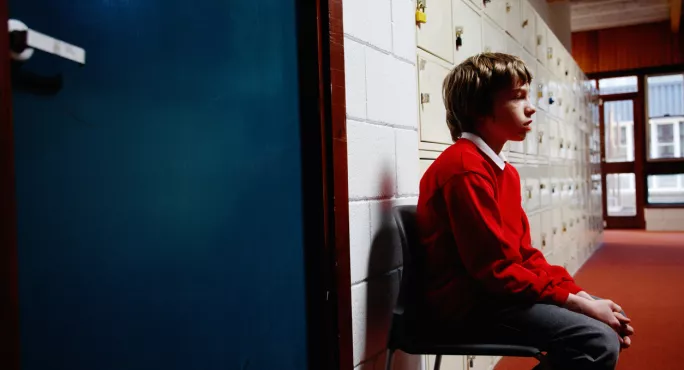Teachers in charge of safeguarding will be given more responsibility for boosting the results of vulnerable pupils, under proposals published today by the Department for Education.
The DfE launched a consultation today with proposals to change the role of the designated safeguarding lead in schools so that they would have more responsibility to improve the academic performance of “children on the edge of care”.
News: Children to be guided away from life of crime
Related: Almost third of children in need ‘persistently absent’ from school
Hinds: Plight of 1.6m ‘children in need’ not understood
The DfE said the proposals “will specifically help children that experience challenges outside of school, which may contribute to poor attendance, poor behaviour and disengagement in lessons”.
The plans will involve sharing information about how pupils’ circumstances might be having an impact on their grades and supporting teachers to plan effective lessons for these pupils and “maintain a culture of high aspiration for them”.
Schools would also track the attendance data of these pupils. The proposals - based on recommendations from the Children in Need review in 2018 - are aimed at supporting the 1.6 million children who have been supported by a social worker at some point over the last six years.
These pupils have worse educational outcomes than their peers and can miss out on their education, as they are three times more likely to be persistently absent from school, and two to four times more likely to be permanently excluded.
Children and families minister Vicky Ford said the new proposals would prevent vulnerable children from slipping “through the cracks”.
“We know that on average, three children in every classroom need a social worker. We also know that far too many of these children fall behind, which is why I am determined to be ambitious for these children and ensure they are seen, safe and able to succeed,” she said.
“Teachers and social workers are some of the most dedicated professionals in society, delivering for children up and down the country. But I do not want any child to slip through the cracks, which is why we are consulting on having a dedicated senior leader in schools to make sure schools know who their vulnerable children are, set high aspirations for them and put in place the right support so they can achieve.”
Last year a review found that children who need a social worker have worse outcomes than their peers at every stage of their schooling, with gaps persisting after their involvement with social care has ended.
Pupils who have needed protection from social care are 50 per cent less likely to achieve strong GCSE passes in English and maths GCSE than their peers.
Dr Sam Royston, director of policy and research at The Children’s Society, said: “Children who are on the edge of the care system can struggle at school as much as children in care, and it is fantastic to see the government recognise the importance of dedicated extra support to help them succeed academically.
“It’s vital that this support focuses not only on their grades but also on their well-being and personal development. This will require additional investment in the pupil premium so schools have resources to provide the right help. Support for vulnerable children mustn’t stop at the school gates and it’s crucial that the underlying issues affecting their lives are addressed as well.”




